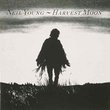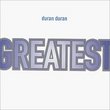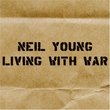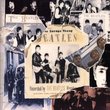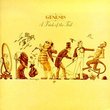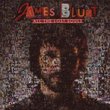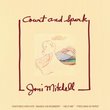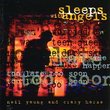| All Artists: Chicago Title: Chicago Transit Authority Members Wishing: 8 Total Copies: 0 Label: Sony Release Date: 10/25/1990 Genres: Jazz, Pop, Rock Styles: Adult Contemporary, Soft Rock, Oldies Number of Discs: 1 SwapaCD Credits: 1 UPC: 074640000829 |
Search - Chicago :: Chicago Transit Authority
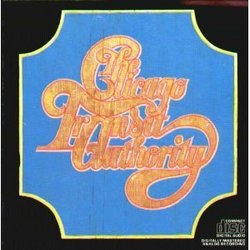 | Chicago Chicago Transit Authority Genres: Jazz, Pop, Rock
Japanese only SHM-CD (Super High Material CD - playable on all CD players) pressing. Warner. |
Larger Image |
CD DetailsSynopsis
Album Description Japanese only SHM-CD (Super High Material CD - playable on all CD players) pressing. Warner. Similarly Requested CDs
|
Member CD ReviewsReviewed on 1/6/2007... This is a double cd version instead of one cd as suggested in the posting. ( and it's real good) MIKE. 2 of 7 member(s) found this review helpful.
CD ReviewsProgressive Rock with a Jazz Twist Lonnie E. Holder | Columbus, Indiana, United States | 06/16/2006 (5 out of 5 stars) "Those who are familiar with Chicago of the 1980s and beyond will likely not know the original incarnation of Chicago at all. In 1969 this music was fresh, original, and, looking back, very progressive. Some critics called this music jazz-rock fusion at the time, which the booklet included with the album explains was a marketing move. Today we know such music in all its incarnations as progressive rock. An amazing six of the twelve tracks from this CD were released as singles during the three years the album was on the Billboard top 100. Of the six, five had to be edited because of their length. In those days, when FM was considered somewhat "underground" because of the paucity of FM stations and receivers, FM was the only place to hear these cuts in their unedited entirety. Ardent fans of Chicago will recognize most, if not all, of these hits by their titles: "Does Anybody Really Know What Time It Is?," "Beginnings," "Questions 67 and 68," "Listen," "Poem 58," and "I'm a Man." I admit that while I recognize most of these songs when I hear them, the titles often do not match well to the lyrics. Even casual fans of Chicago would likely recognize most of these songs from the airplay they received in the late 60s and early 70s, and the airplay they continue to receive on classic rock stations. Some of the songs in their unedited album versions are unfamiliar. The extensive piano introduction to "Does Anybody Really Know What Time It Is?" gives the song an even stronger jazz influence than the song proper. "Beginnings" starts out like the version released for radio, but it is nearly eight minutes long on the CD, adding an extended instrumental exit that adds jazz and Hispanic elements. While the term jazz-rock does seem to classify much of this music, this first effort by Chicago involved experimenting with a variety of genres. "Free Form Guitar" uses heavy feedback in a style strongly reminiscent of Jimi Hendrix. Music such as "Free Form Guitar" make "Chicago Transit Authority" as experimental in some ways as the contemporary "In the Court of the Crimson King" by King Crimson, considered one of the key milestones in progressive rock. The last selection on this CD, "Liberation," has riffs that feel like some of the heavier music of the 60s, and manages to be sufficiently free-form that you might wonder whether this recording was the first time that Chicago played this music in exactly this way. While there is a jazz influence in this song, it is a very psychedelic rock song. There are at least six versions of this CD available. The prices vary slightly with the exception of the phenomenally expensive gold version. You may wish to survey the versions available and their price before buying. The music in this album is all over the map in a way, from pop influenced songs like "Does Anybody Really Know What Time It Is" to the bizarre guitar instrumental of "Free Form Guitar." Every cut shows the breadth of talent and ability of a group that should be considered progressive in its first incarnation. Even the pop influenced songs generally have only pop portions, with incredible layered instrumentals surrounding the pop portions. This album contains absolutely phenomenal, ground-breaking rock music, a must-have for any fan of progressive rock and cutting edge music of all eras. " Fantastic music from a golden era !! M. T. O'mahony | Leeds, England | 05/30/2006 (5 out of 5 stars) "Want to hear something different and ground breaking? Well this album delivers both in spades !! As a mere 16y old in the late 1960's I was used to the very special music that was being made both in England and the US. However I was not prepared for this. This wasn't "progressive rock", "jazz" "pop" or "blues". In fact it couldn't be categorised and that's where the beauty of this music lays. Right from the outset your ears will wonder where the tunes will take you next. How can for instance "free form guitar" and "does anybody know what time it is ?" be on the same album. Would this be the case today ? I won't say anything further...just to invite you to listen to probably the most inventive a technically brilliant piece of music you might ever come across. And I mean cw Pet Sounds or any of the Beatles output !!!!"
|

 Track Listings (12) - Disc #1
Track Listings (12) - Disc #1